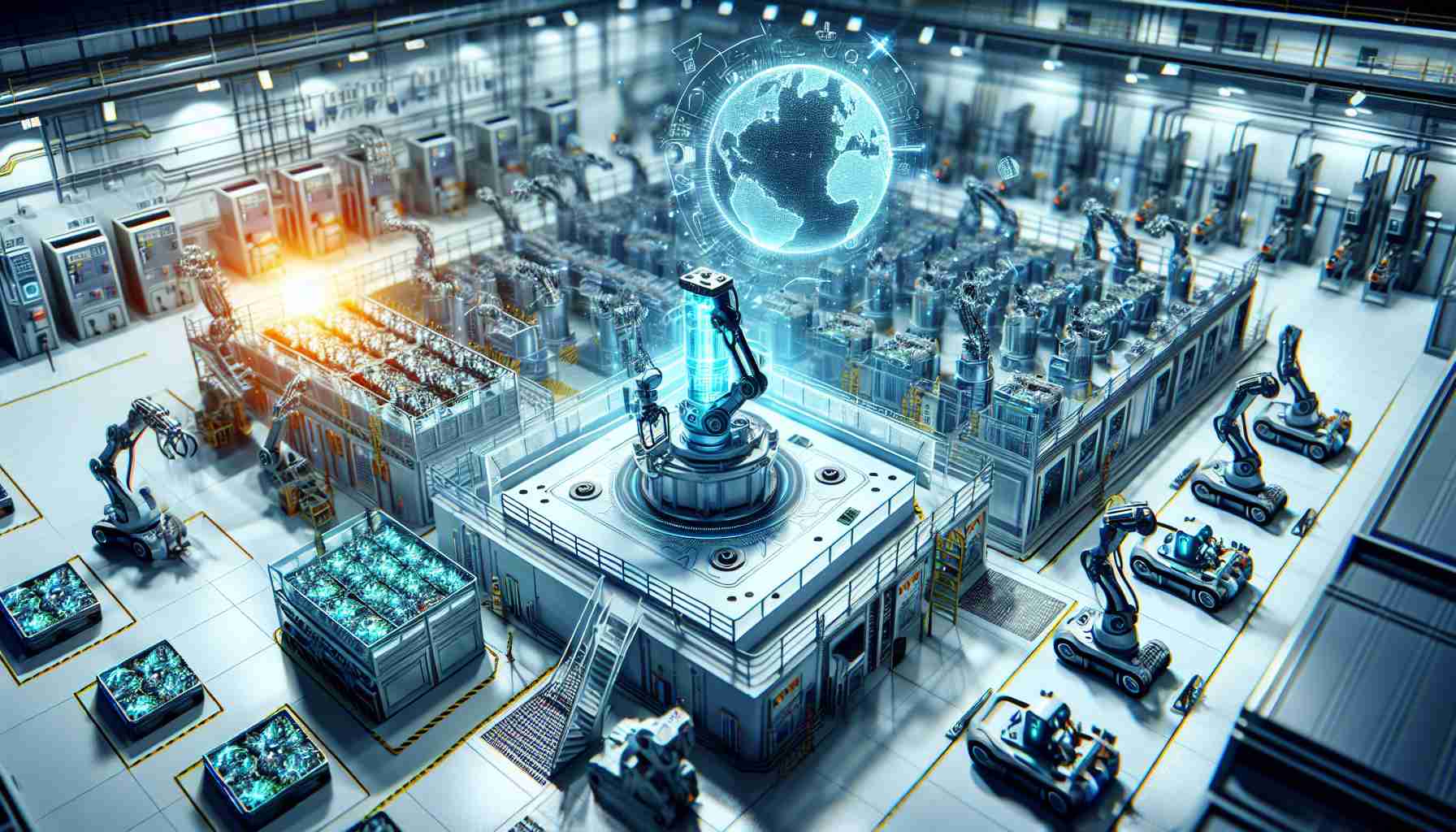In a groundbreaking shift towards sustainable technology, UK-based Altilium is reshaping the future of electric vehicle (EV) battery disposal and recycling. The launch of their innovative platform, recell.store, aims to tackle the escalating issue of end-of-life EV batteries, promising an eco-friendly approach to battery waste management.
Strategically addressing a pressing challenge, Altilium’s new venture is designed to streamline the recycling process for business entities by facilitating the sales and retrieval of used batteries. Collaborating with vehicle dismantlers and automotive partners, the platform offers a simple interface where companies can list their old batteries, receive valuation quotes, and arrange for their seamless collection—all within a few clicks.
Efficiency meets environmental responsibility as recell.store not only simplifies the recycling logistics but also prioritizes the recovery of crucial materials like lithium and nickel, fostering a circular economy. This initiative aligns with the forecast that over 100 million EV batteries will retire in the next decade, urging the need for responsible waste management.
Employing its cutting-edge EcoCathode™ technology, Altilium asserts its commitment to eco-conscious practices by reclaiming up to 95% of battery metals. This process significantly reduces costs and minimizes greenhouse gas emissions, providing sustainable materials for future battery production and lowering dependence on virgin resources.
Already collaborating with major car manufacturers and recyclers, Altilium plans to construct the UK’s largest EV battery recycling facility in Teesside. This strategic expansion underscores their dedication to keeping valuable minerals within the UK, securing a sustainable supply chain for battery production.
For forward-thinking businesses, recell.store presents an opportunity to engage in this revolutionizing movement towards eco-friendly battery management. Visit www.recell.store to explore the future of sustainable energy solutions.
Revolutionizing EV Battery Recycling: Uncovering Hidden Advantages and Controversies
In the ever-evolving landscape of electric vehicle (EV) technology, the disposal and recycling of EV batteries present both an opportunity and a challenge. As Altilium leads the charge with its innovative platform, recell.store, there are critical, yet less discussed, implications of this development that ripple across communities, countries, and the global environment.
Impact on Local Economies and Job Creation
One of the overlooked aspects of Altilium’s move is its potential to breathe new life into local economies. By establishing the UK’s largest EV battery recycling facility in Teesside, a region historically known for its industrial activity, Altilium not only supports sustainability but could also catalyze local job creation. Shifting focus towards green technology in areas hit by industrial decline might spark a rebirth of economic vitality, providing new opportunities for skilled labor in a sector poised for growth.
Interesting Facts and Emerging Controversies
Recycling not only reduces waste but also creates a cycle of reuse for valuable materials, a principle central to the notion of a circular economy. However, interesting controversy arises regarding the transparency of the recycling processes used around the world. While Altilium claims an impressive 95% recovery rate of battery metals, there remains skepticism in the broader industry about the potential environmental impacts of battery recycling operations.
Moreover, as countries like China and the United States vie for dominance in battery technology, the strategic importance of local supply chains becomes evident. The ability to recycle and reuse battery components domestically can afford the UK a competitive edge, reducing its dependence on imported materials.
Advantages and Disadvantages of Altilium’s Approach
The most prominent advantage of Altilium’s approach is its commitment to sustainability. By reducing reliance on mining new resources, Altilium helps minimize ecological disruption and lowers greenhouse gas emissions associated with new mining activities.
However, the scalability of their model remains to be tested. Will the infrastructure and technology to support this massive influx of batteries be able to keep pace with projected demand? And can other countries replicate this model effectively, given differing regulatory environments and economic conditions?
A Broader Context and the Future
Looking towards the future, a critical question arises: What happens when the recycling industry becomes as lucrative as the virgin resource extraction industry? How will this shift affect global geopolitics concerning resource-rich countries?
For those eager to dive deeper into sustainable energy solutions, understanding the broader impact of battery recycling and reuse is essential. The implications of these technologies extend beyond environmental benefits, posing significant economic and political questions that will shape the future of energy.
Learn more about the trajectory of battery technology and sustainability through resources and industry insights available at these recommended links: World Resources Institute and International Energy Agency. These organizations provide in-depth analysis and data on global sustainability trends and energy innovations, essential for anyone interested in the future of energy resources.







